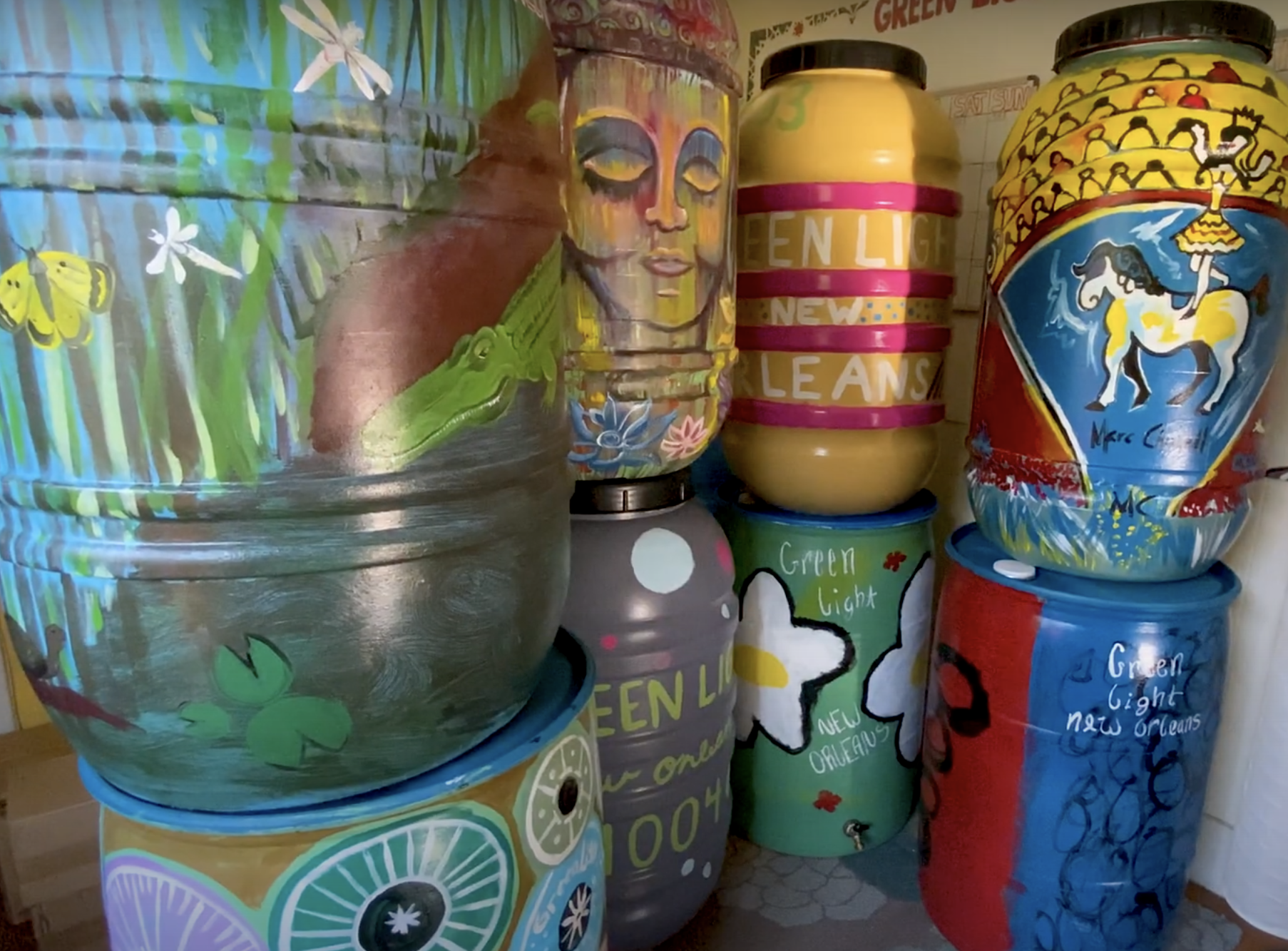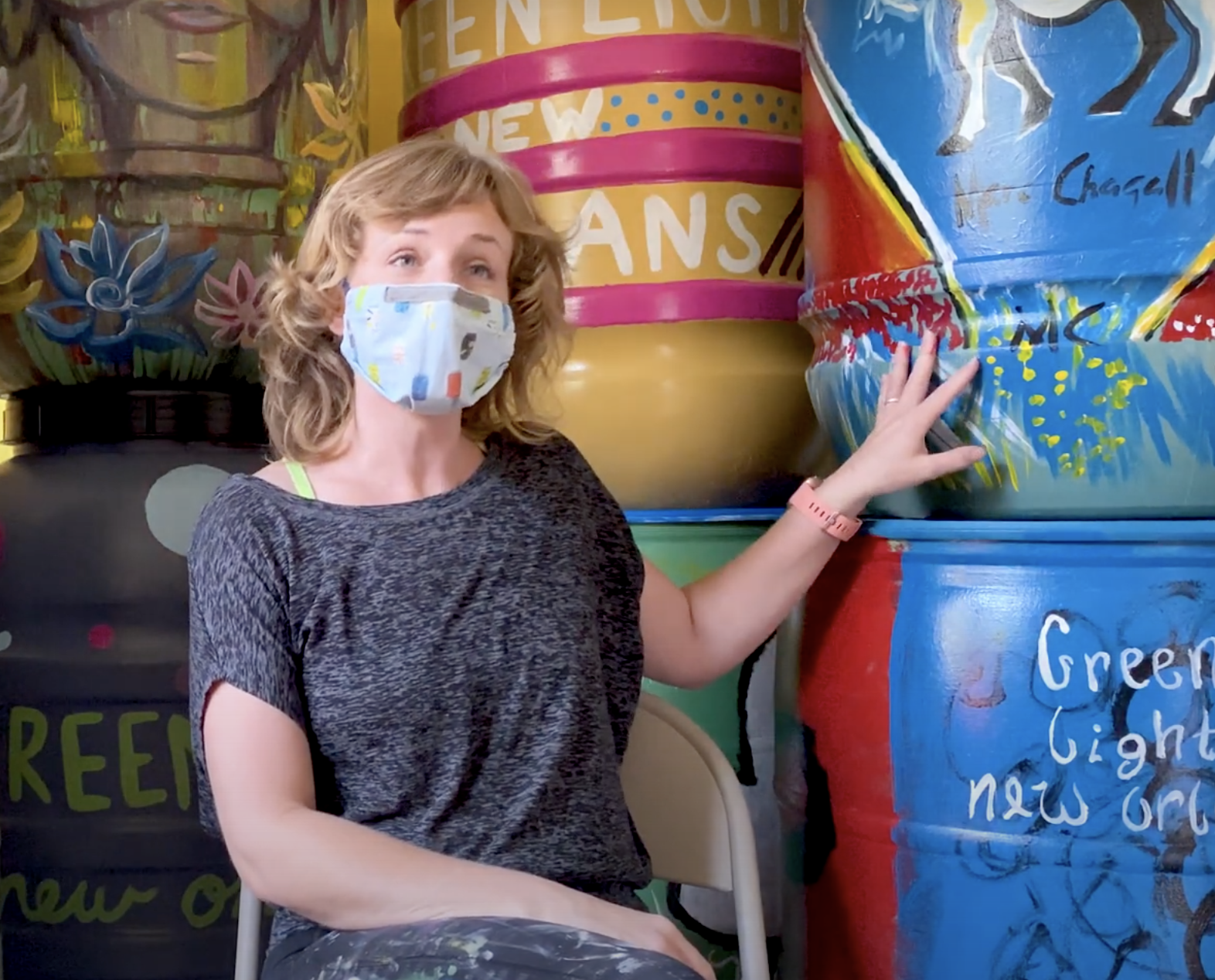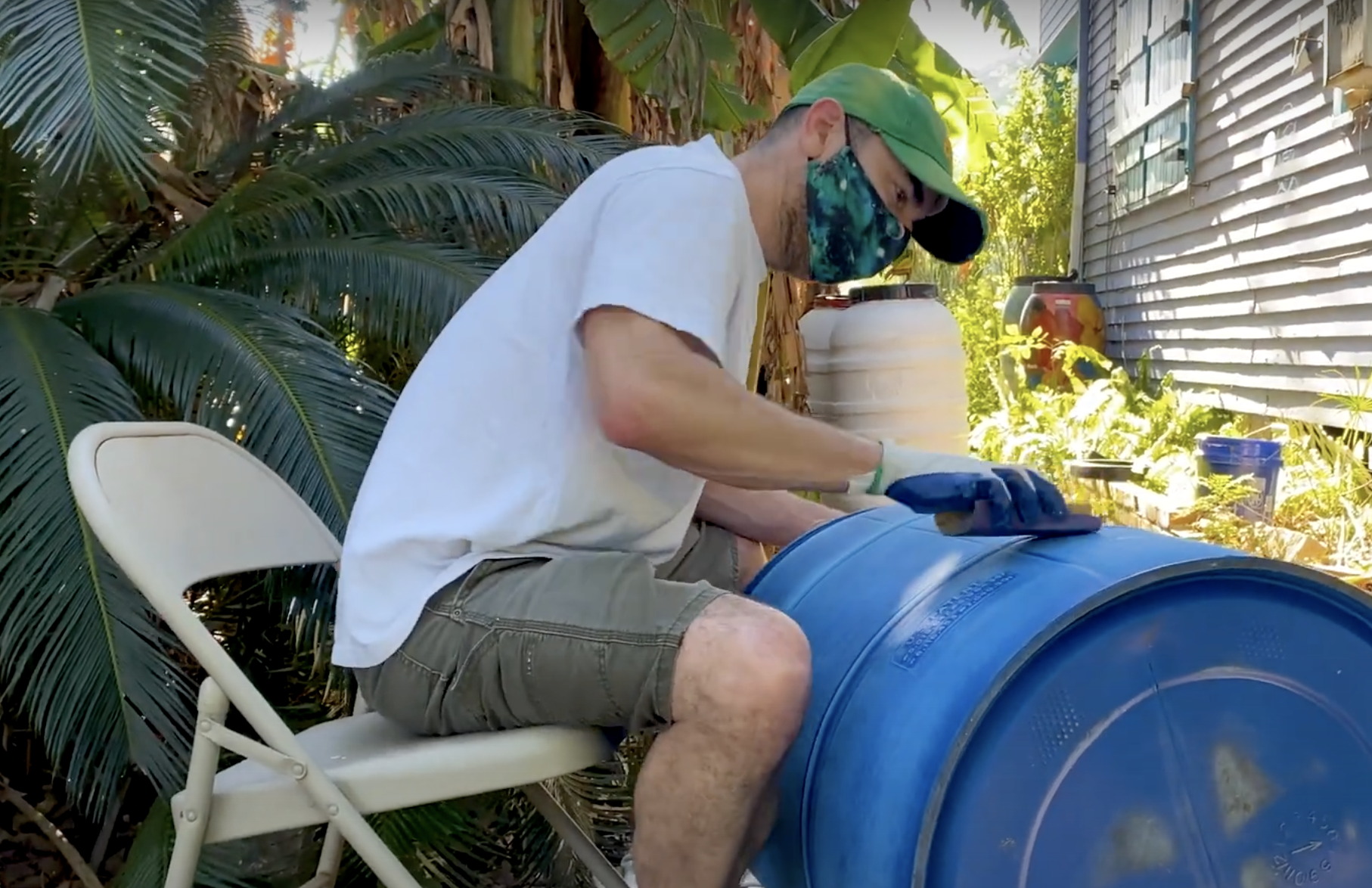By: Brett Steinberg

Finished Rain Barrels on display.
It is apparent within the “bubbles” of some college campuses that many students don’t always appreciate the resources they have provided to them, like food on the table and clean water to drink. That is why I made a short documentary about the organization Green Light New Orleans and its efforts to promote sustainability. The organization repurposes barrels to retain rainwater. Barrels come from the restaurants in the community and a landfill diversion initiative they have with Zatarain’s. One of the many great things Green Light New Orleans does revolves around these rain barrels. They clean, sand, paint, and decorate each barrel uniquely so that they can install them in the homes of people who would benefit from a personal reservoir.

Jillian (volunteer coordinator) details how they receive barrel donations from restaurants in the community. She also shares about the landfill diversion initiative Green Light started with Zatarain’s.
I believe this video could change the attitudes of those who take certain items for granted that others struggle to obtain. My goal is for people to understand why those resources are critical to building a healthy life. After watching it, I hope students like myself decide to volunteer at Green Light New Orleans. My experience with Green Light New Orleans and the time I spent learning about their rain barrel program has made me appreciative of the running water I too often take for granted.
Volunteers have built and installed 894 rain barrels for homes to easily retain and store their water supplies. Residents have saved a total of $30,859 worth of water since the organization started making rain barrels. Once installation is complete, a hose runs from the house’s gutter to a large barrel that Green Light New Orleans has repurposed.

A volunteer hand sanding barrels.
Green Light New Orleans has trained over 16,000 volunteers and has had 4,600 residents sign up for recycling. Although the documentary is focused on rain barrels, Green Light New Orleans also promotes efficient energy to households utilizing their services. They do this by providing energy-efficient Compact Fluorescent Light bulbs (CFLs) because they conserve kilowatts per hour (kWh) compared to regular light bulbs. These light bulbs have conserved 240 million kWh, and homes have saved $28 million in related energy costs. Residents can trade these bulbs out for replacement bulbs, but they usually last years. The non-profit installs backyard gardens to give residents access to healthy and cheap food within the comfort of their own homes. Six hundred-one home gardens have been constructed, increasing access to fresh produce for 1,264 adults and children. Introducing cost-effective food sources like home gardens allows homeowners to designate their income towards other family resources.
Watch my short video about Green Light NOLA here:
 NOLAbeings Multimedia artist Claire Bangser created NOLAbeings as a portrait-based story project that marries...
NOLAbeings Multimedia artist Claire Bangser created NOLAbeings as a portrait-based story project that marries...  Voodoo in New Orleans: Reviving history: New Orleans fortune telling This article takes a deep dive into the history of Voodoo in New Orleans, its hybridization with Catholicism, and its present-day place in the city's culture. The author visits fortune-tellers in the French Quarter, using their guidance as a tool for introspection rather than a deterministic predictor of the future. Through her experiences in New Orleans, the author feels a mystical connection to both the past and the future.
Voodoo in New Orleans: Reviving history: New Orleans fortune telling This article takes a deep dive into the history of Voodoo in New Orleans, its hybridization with Catholicism, and its present-day place in the city's culture. The author visits fortune-tellers in the French Quarter, using their guidance as a tool for introspection rather than a deterministic predictor of the future. Through her experiences in New Orleans, the author feels a mystical connection to both the past and the future. 